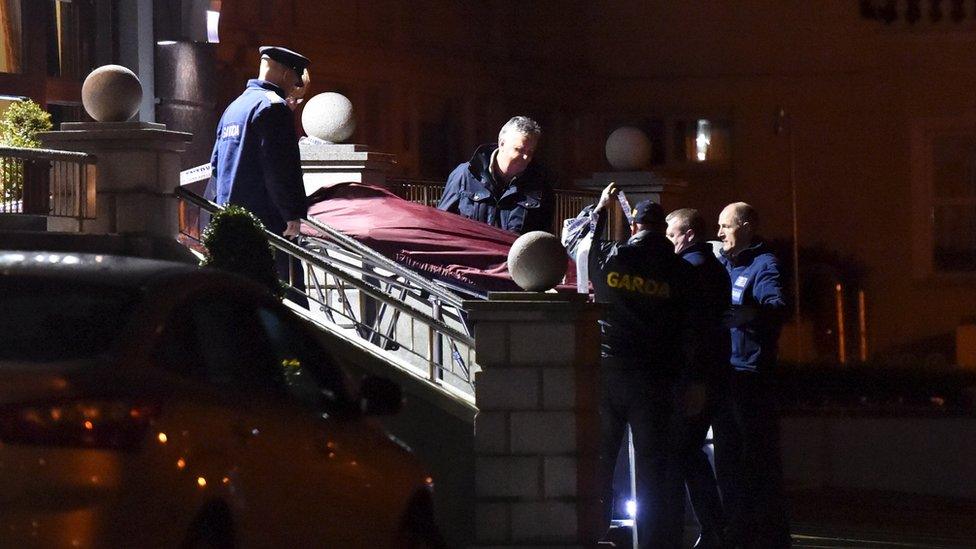Christy Kinahan: Inside the Dublin kingpin's European drugs enterprise
- Published
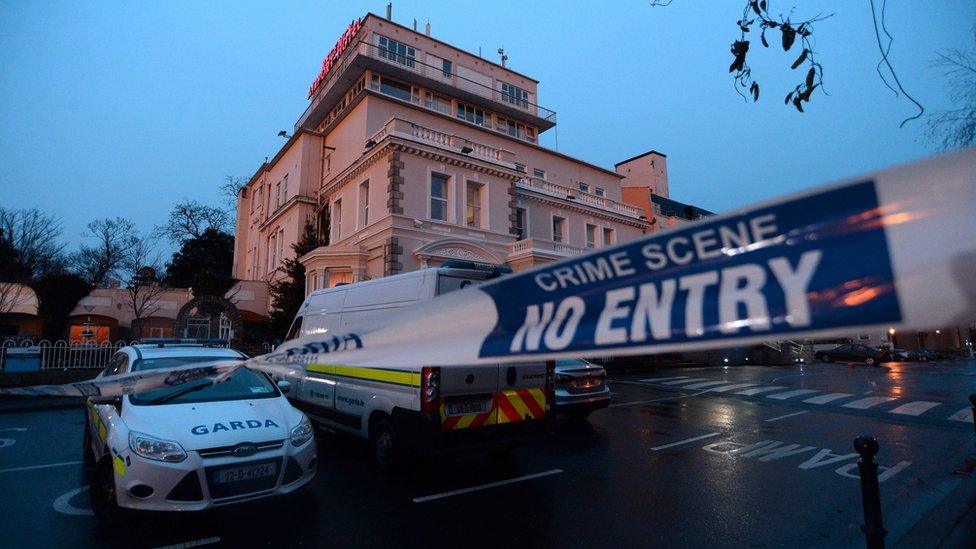
Dublin's gangland feud erupted with the murder of a man at a boxing weigh-in last month
Until last month, Christy Kinahan was largely unknown to the general public.
The Dublin man's name and activities were mainly of interest to Irish police and crime journalists.
But over the course of four violent February days, Kinahan, and the criminal enterprise that bears his name, attracted global interest.
First, a man was shot dead at a boxing weigh-in at a Dublin hotel, with another man then murdered in what police believed was a reprisal attack.
Kinahan's rise, from minor Dublin criminal to the kingpin behind one of Europe's biggest drug cartels, seems like the stuff of fiction.
He grew up in Dublin's south inner city, and in the late 1990s was convicted of drugs offences.
He might have remained a low-level drug dealer for the rest of his life, but it seems he was ambitious.
Connections
In prison he devoted himself to education, and learning languages in particular.
By the time he walked out through the prison gates in 2001, he was fluent in Spanish and Dutch, languages which he would soon utilise.
A spectator was filming the when shooting began at a boxing weigh-in at a Dublin hotel
He moved to Spain, where he quickly made connections with Irish and UK criminals.
He started importing drugs from South America and distributing them throughout Europe.
His business grew, and grew.
Kinahan was making tens of millions of euros.
But that kind of money attracts attention, no matter how assiduously it is hidden.
Wealth
In 2008 a number of police forces across Europe linked up to investigate the Kinahan operation, although by then it could be better described as a cartel.
The investigation, code-named Operation Shovel, was led by Spanish authorities but also incorporated specialist police teams in Belgium, the Republic of Ireland and the UK.
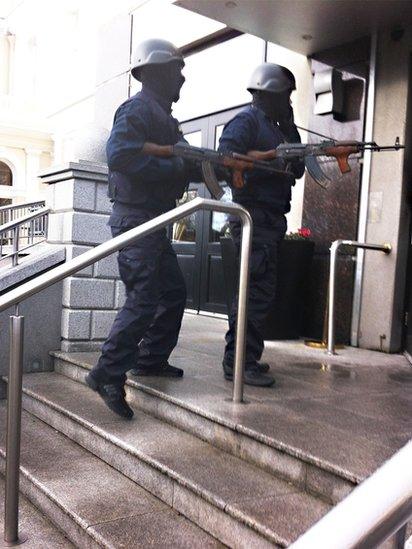
Gunmen in police-style uniforms carried out the attack at the hotel
Operation Shovel became a wide-ranging and forensic investigation but the exact details contained within the police files have never been made public, until now.
The BBC's Spotlight programme has exclusively obtained the Spanish police files from that investigation, and the detail is remarkable.
They reveal the astonishing wealth and global scope of the Kinahan drugs trafficking operation.
The files contain lists of bank accounts and their locations, the names of various companies said to be fronts for laundering drug money, and the meticulous security measures used by Kinahan and his associates.
The files also contain the transcripts of wire taps that give an insight into how the cartel worked from the inside.
In one such conversation a well-known Dublin criminal appears to be arranging to deliver a gun to Gary Hutch, a nephew of Gerard Hutch, who at one time acted as a bodyguard for Daniel Kinahan, the man now said to be in day-to-day control of the Kinahan cartel.
Complex
The files also reveal the vast wealth accrued by the cartel.
At one point, members of the gang are revealed to be discussing the possibility of investing in their own container ship.
Wiretaps reveal the gang discussing how their ship would be used to export what they refer to as sugar from South America.
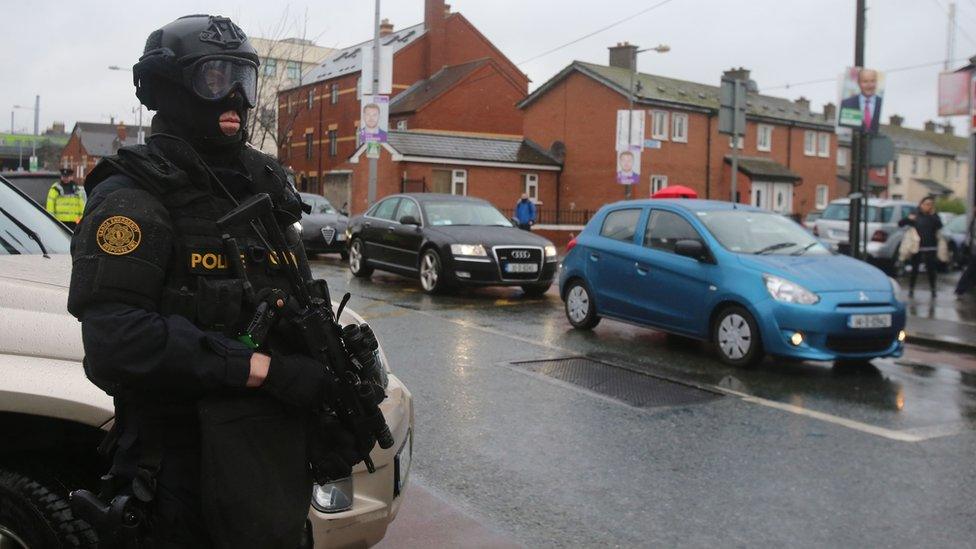
Police were on high alert in Dublin after two violent murders in a matter of days
Another conversation reveals how Kinahan suggested that the gang should consider buying their own marina in southern Spain.
The Spanish police documents reveal a complex international web of finance and logistics that the authorities clearly believed was being used for wholesale drug trafficking.
Urgency
The big question is, given the scale of Operation Shovel, including the detailed surveillance carried out by the Spanish police and the intelligence in the files, why has there not been a prosecution against any of the leading gang members for drug trafficking?
The information has been in the hands of the Spanish police for more than six years.
It is unclear whether it was shared in full with the Irish police force, the Garda Síochána, which was a partner agency in the operation.
But it has been six years in which there have been numerous murders that have been attributed by police sources to the Kinahan cartel.
The recent spate of murders may have lent a new urgency to the international police operation against the Kinahan cartel.
What is now becoming clear is how much the police already know.
Spotlight will be broadcast on BBC One Northern Ireland at 22:45 GMT on Tuesday 15 March.
- Published14 February 2016
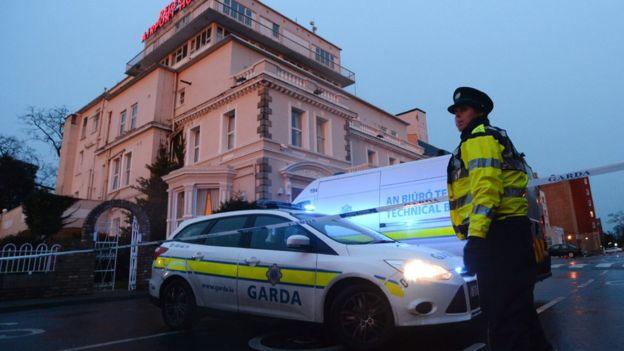
- Published8 February 2016
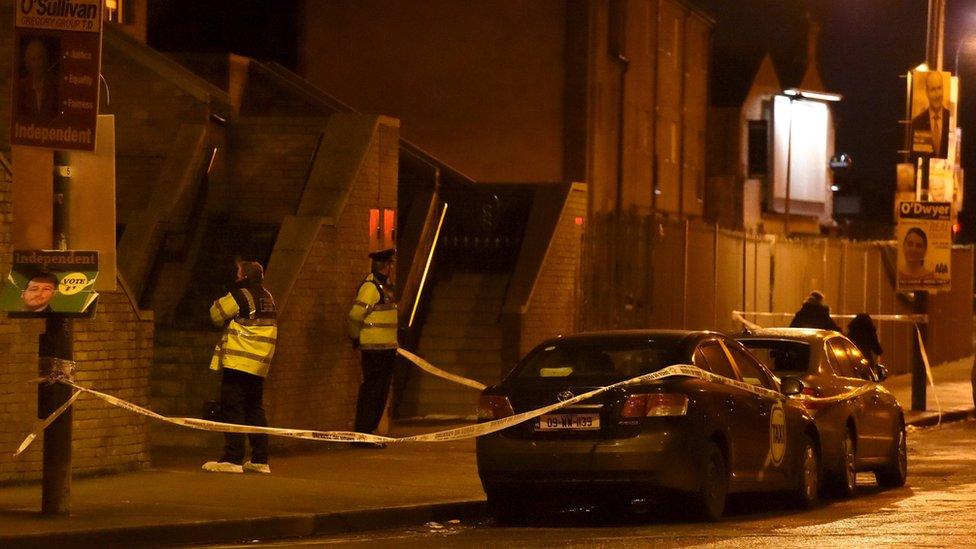
- Published5 February 2016
